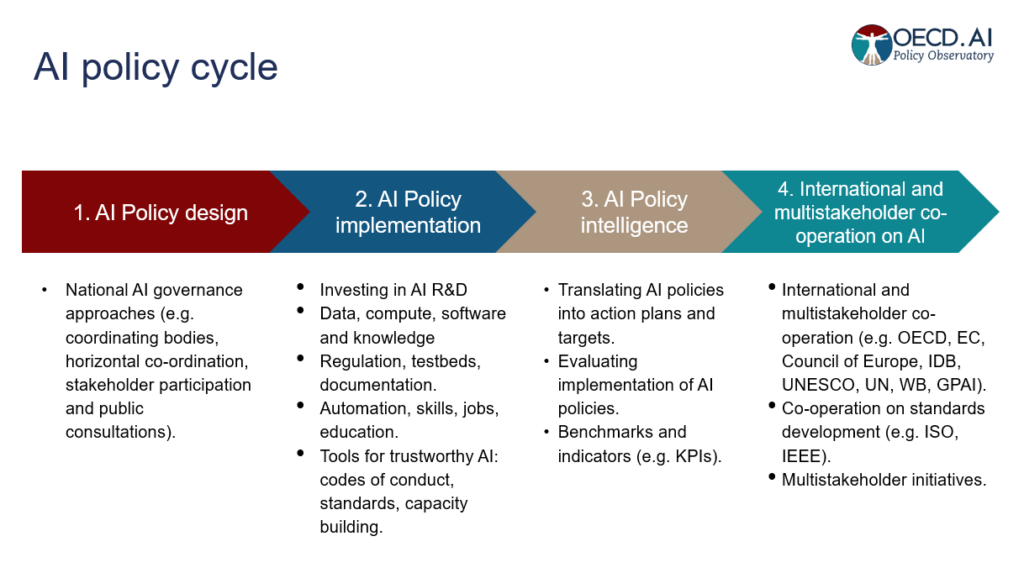The Organisation for Economic Co-operation and Development (OECD) is embarking on a new initiative to investigate the possibility of a global framework for governing artificial intelligence (AI). AI's rapid development has spurred concerns about its potential impact on society, and the OECD's initiative reflects a growing international recognition of the need for coordinated action.
The initiative, known as the Digital Society Initiative, will bring together governments, industry leaders, and civil society organizations to explore various aspects of AI governance. This will include examining issues such as bias and fairness in AI algorithms, ensuring transparency in AI decision-making, and mitigating the potential risks of job displacement due to automation.
The OECD has already established itself as a leader in the field of AI policy. In 2019, the organization released its landmark AI Principles, which have been adopted by over 60 countries. These principles outline key values that should guide the development and use of AI, such as human-centeredness, fairness, transparency, and accountability.
The Digital Society Initiative builds upon this foundation by focusing on the practical application of these principles. The initiative will involve a series of workshops and consultations that will allow stakeholders to share best practices and identify areas where international cooperation is needed.
One of the key challenges that the initiative will address is the potential for AI to exacerbate existing inequalities. AI algorithms can perpetuate biases if they are trained on data sets that are not representative of the population. This could lead to discriminatory outcomes, such as AI-powered hiring tools that disproportionately disadvantage certain groups of applicants.
The initiative will also explore the implications of AI for privacy and security. As AI systems become more sophisticated, they will have access to ever-increasing amounts of personal data. It is crucial to ensure that this data is collected and used in a responsible manner.
The OECD's initiative is a welcome step towards ensuring that AI is developed and used in a way that benefits all of society. By bringing together stakeholders from around the world, the initiative can help to foster a global conversation about AI governance and identify areas where international cooperation is needed.
The ultimate goal of the initiative is to develop a set of recommendations for governments and other stakeholders on how to best govern AI. These recommendations could include specific policy proposals, as well as non-binding best practices.
The OECD's initiative is a recognition of the fact that AI is a global challenge that requires a global response. By working together, countries can ensure that AI is used for good and that its benefits are shared by all.

